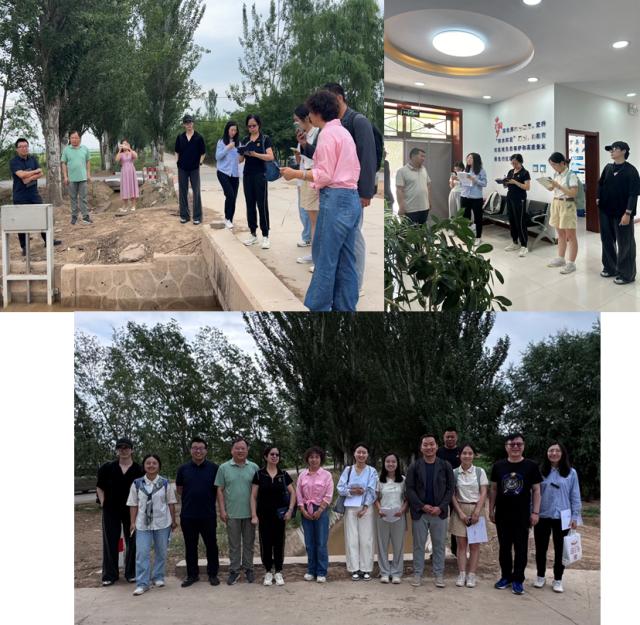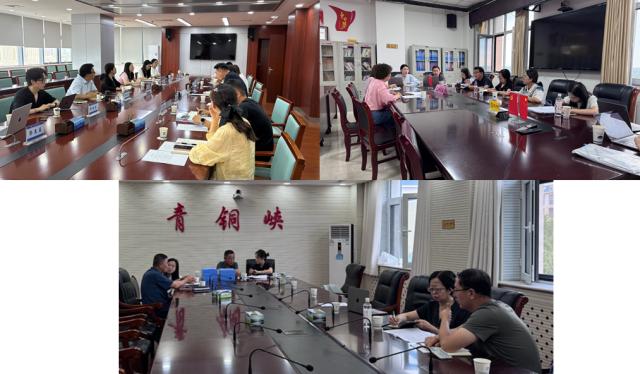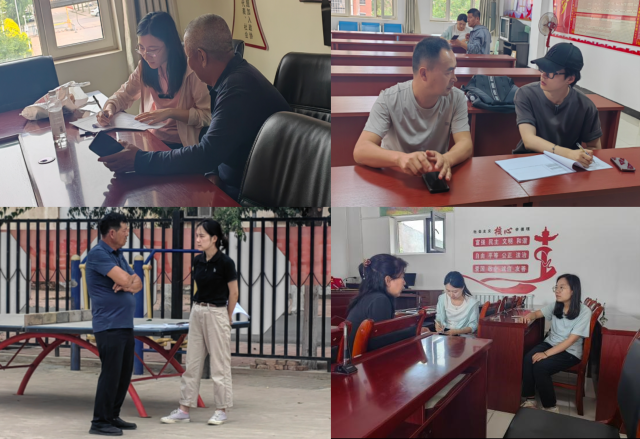current location: Home> Central News
Central News
Professor Jinxia Wang led a team to Ningxia to conduct a special study on water resource management.
Release date:2025/06/26 Source: CCAP
From June 23 to 25, 2025, Professor Jinxia Wang, Director of the China Center for Agricultural Policy, Peking University, led a team to Ningxia to conduct a preliminary investigation for the sixth round of the “China Water Institutions and Management (CWIM)” large-scale longitudinal survey. The previous five rounds of CWIM surveys were conducted in 2001, 2004, 2007, 2011, and 2016, respectively.
The research team included Dr. Wang Zhuanlin (Postdoctoral Fellow, School of Advanced Agricultural Sciences, Peking University), PhD candidates Guo Zhiyi and Sun Yingying, and research assistants Guo Bingxu and Yang Liwen. Also participating were Associate Professor Cui Yi from the School of Economics at Beijing Technology and Business University, Associate Professor Sun Tianhe from the Institute of Economics at Hebei University of Economics and Business, and Dr. Yan Fei’er, Research Assistant at the Center for Agricultural Risk Management and Safety Development at Zhejiang University.

Figure 1. Team members visit a digital water conservancy project and an irrigation service cooperative.
From June 23 to 24, the research team held in-depth discussions with officials from the Water Resources Bureaus and Agriculture and Rural Affairs Bureaus of Helan County, Pingluo County, and Qingtongxia City, as well as with representatives from township-level irrigation management service companies and relevant agricultural cooperatives. The discussions focused on key topics such as reforms in local irrigation management organizations, water rights and comprehensive agricultural water pricing reform, digital water conservancy development, and the promotion of high-efficiency water-saving agriculture.
The team also visited advanced digital water technologies, including automated sluice gates, water-saving drip irrigation systems, and integrated water and fertilizer management systems. In addition, the researchers visited rural villages, where they conducted face-to-face interviews with village leaders and farmers, and carried out pilot testing of the survey questionnaire.

Figure 2. Team members hold a discussion with leaders from the Department of Water Resources and local Water Affairs Bureaus.
On the morning of June 25, the research team held a meeting with officials from relevant departments of the Ningxia Department of Water Resources. Building on insights gained from grassroots interviews over the previous two days, the team further explored key initiatives and notable achievements made by the department under the framework of the “Four Waters and Four Determinations” principle. These included reforms in irrigation management organizations, agricultural water pricing and water rights reform, the development of digital water conservancy, water-saving and supply measures, and water resource allocation and scheduling.

Figure 3. Team members conduct field research in a village.
This research effort received strong support from the Ningxia Department of Water Resources, county-level water and agricultural departments, and grassroots management units. Their cooperation provided the research team with valuable practical cases and insights into key areas such as agricultural water rights confirmation, grassroots water management, agricultural water pricing and water rights trading mechanisms, and digital water conservancy development across different regions of Ningxia in recent years. These findings will serve as an important reference for adjusting future survey content and research design based on local realities, thereby contributing to the development of scientifically informed strategies for improving irrigation management.



 Home
Home



